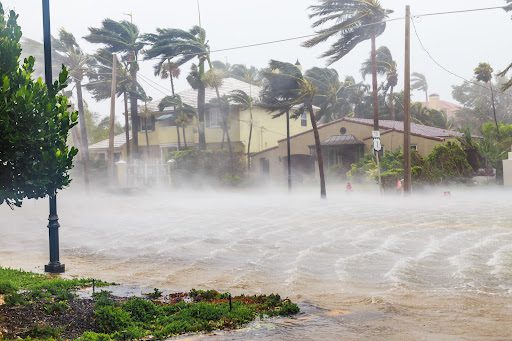You can never fully prepare yourself to endure the stress and shamefaced during, or in the aftermath of, a hurricane. Despite it being a necessary evil, hurricanes have and will continue to strike.
And, because of that unfortunate fact, you need to know about repairing hurricane damage.
We’re here to help you out. We know what you’re going through, we’ve been there and done that, and we hope to shed a bit of light on the darkness that’s about to descend upon your life.
Read on for our in-depth guide to dealing with hurricane damage repair’s financial and emotional impact.
Assessing the Extent of Damage
This should include a thorough inspection of the exterior to determine the structural integrity of the property. Measurements should be taken, both visually and with a tape measure, of any damage caused to windows, walls, roofs, and other structures. Furthermore, any property damage to landscaping should be documented and photographed.
Likewise, any standing water or waterlogged sections of the property should be drained and the moisture levels should be measured. Finally, if there is any suspicion of hidden damage, such as under the floorboards, homeowners should consult a professional to ensure all the damage is identified and assessed.
Reaching Out for Professional Assistance
Having help from a hurricane property loss attorney helps those that have experienced hurricane damage receive the resources they need. They will be able to understand the situation and make informed decisions about what to do next. These lawyers are highly educated and trained.
They also provide effective legal strategies for their clients in the event of a hurricane claim. An attorney can also help with filing home insurance claims, billing disputes, and analyzing contracts.
With their expertise and help, homeowners can take the necessary steps to ensure that their property is properly repaired and that they receive the justice they deserve for hurricane damage.
Sources of Financial Assistance
After a hurricane, there are federal, state, and insurance resources available. These will help homeowners repair the damage, as well as some tax incentives.
The federal government offers FEMA programs. This includes such as Individual Assistance which provides grants and loans. It will help you to cover necessary expenses that aren’t covered by insurance or other sources.
Preparing Your Home for the Next Storm
This involves making sure your home is up to local codes, securing any loose items, and weather-proofing your windows or doors. Clean out your gutters and downspouts. Inspect the roof and make any necessary repairs.
Also, trim any trees that could damage your home during the storm. Ensure that you have important supplies like ladders, plywood, and tools on hand for any unexpected repairs that may need to be done.
To prepare for flooding, seal any cracks and gaps in your home to make it water-resistant. Finally, make sure to build up your emergency fund in case repairs are needed.
Repair and Reside Your Home After a Hurricane Damages
Homeowners who have experienced hurricane damage must prioritize safety. Research their options, and act prudently. Make sure to get proper guidance from insurance providers to cover the costs and ask for professional help when necessary.
Be prepared for hurricane damage, and make sure to follow the right procedures. Doing this can lower future repair costs and prevent safety hazards. Act now to get your home hurricane damage ready!
For more insightful articles and more, check out our blog!



